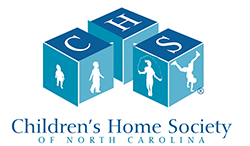CQI Case Studies
Wise Guys is an adolescent pregnancy and STD prevention program that teaches young males (age 11-17) self-responsibility with an emphasis on sexual development, decision-making, and relationships. The Wise Guys Male Responsibility Curriculum© focuses on two of the most important tasks teens face: (1) preparing themselves for independence and (2) dealing with their sexual and reproductive development, feelings, and behaviors. The program is typically delivered over 10 weeks by trained Wise Guys educators in school and community settings. A series of evaluations (including one with a randomized control group) have documented positive outcomes for Wise Guys participants, and a larger evaluation is currently underway.
CQI Goal
Develop and put in place a process to consistently gather data about how the program is being implemented (via “fidelity logs”) so that the Wise Guys team is better able to:
- Understand how sessions are going and identify what is working/not working
- Make changes to what is being taught (i.e., curriculum content) and/or how it is being taught (e.g., educator approach, class size, setting or other contextual factors that may affect participant engagement and learning)
- Understand how implementation influences outcomes and continue to build evidence about the effectiveness of the program.
CQI Cycle
Plan
Design and implement a process and tools to gather actionable information from families about key barriers that inhibit their participation in WIC services. Look across steps in the process such as enrolling, visiting the WIC office for direct nutrition and other support, redeeming benefits, etc.
Do
Test the fidelity monitoring process over several sessions, gather feedback, adjust, and then test across all settings.
Study
Review and reflect on the initial data and the process to put fidelity monitoring in place with the full team – educators, supervisors, program management, department management, and quality improvement.
Act
Added a question to the fidelity log related to diversity/inclusion and decided to fully implement across all Guilford County sites & classes, and agreed on next steps for analysis and making use of the data.
Learning
CQI is often about making changes, and being an effective leader of change requires some pre-planning and detail-oriented thinking – so you can bring the team along and benefit from the group’s ideas.

